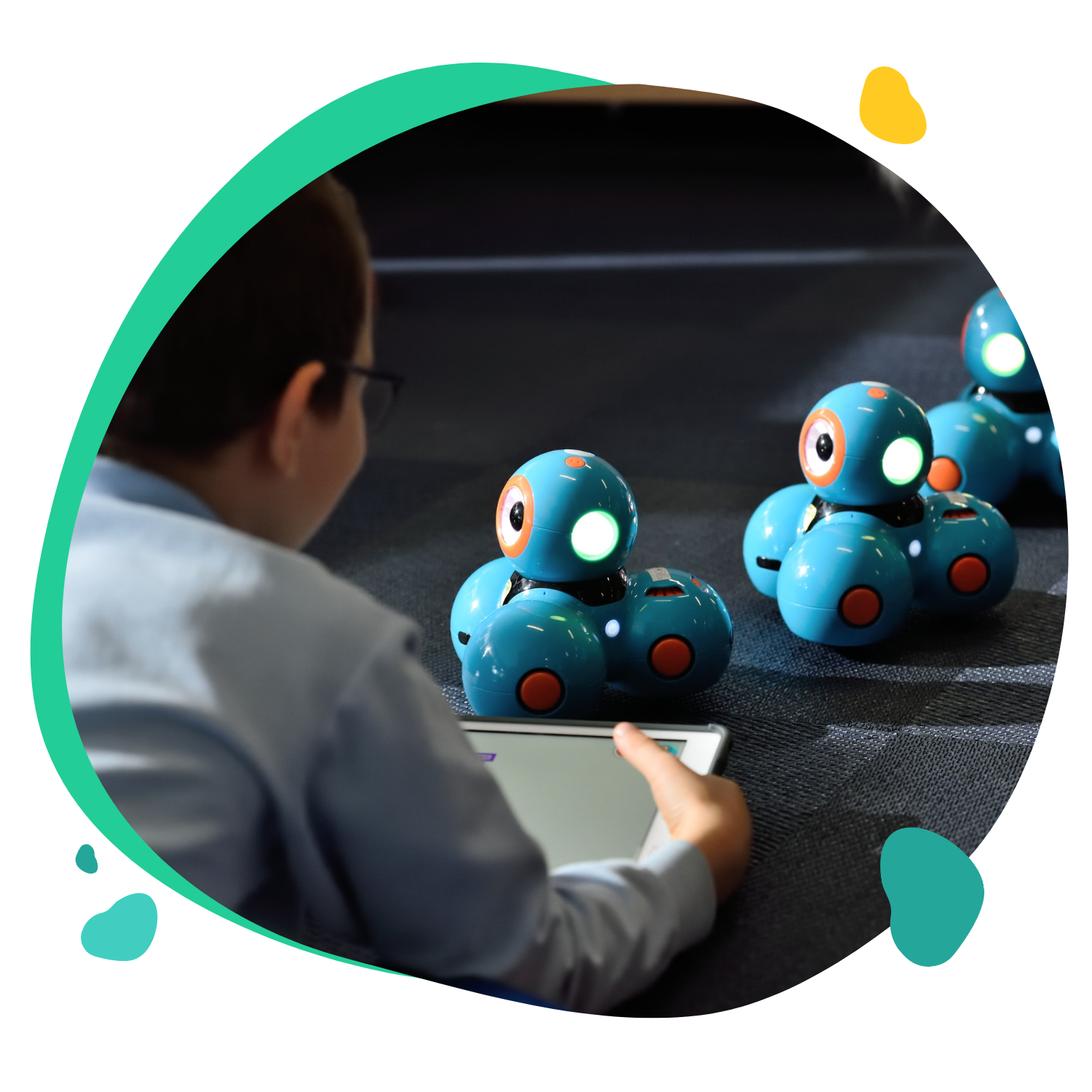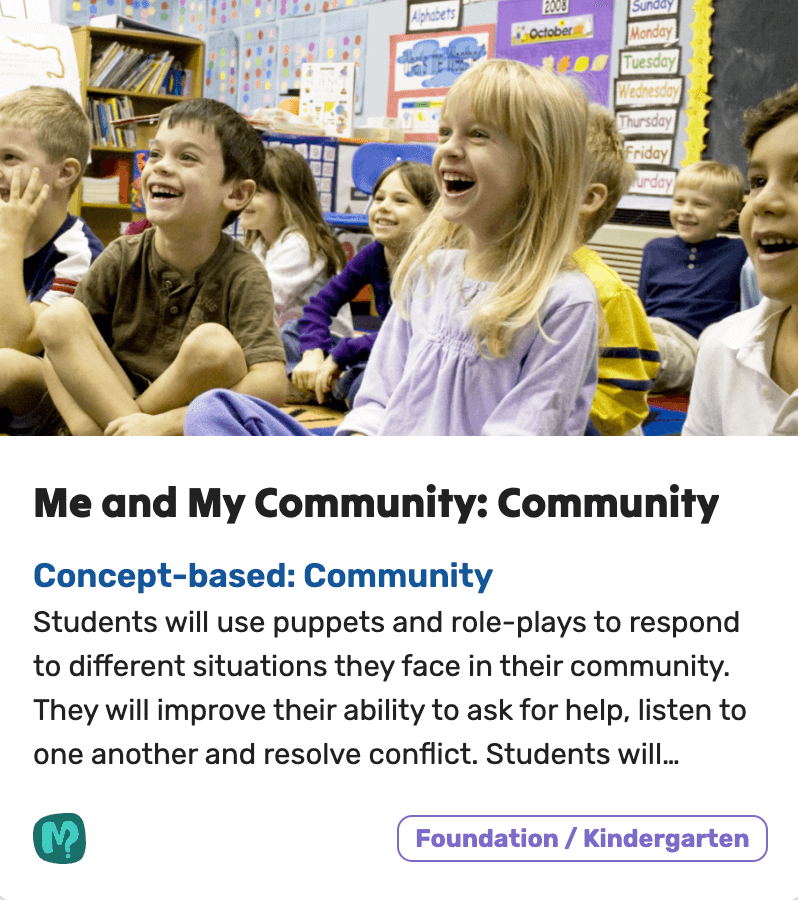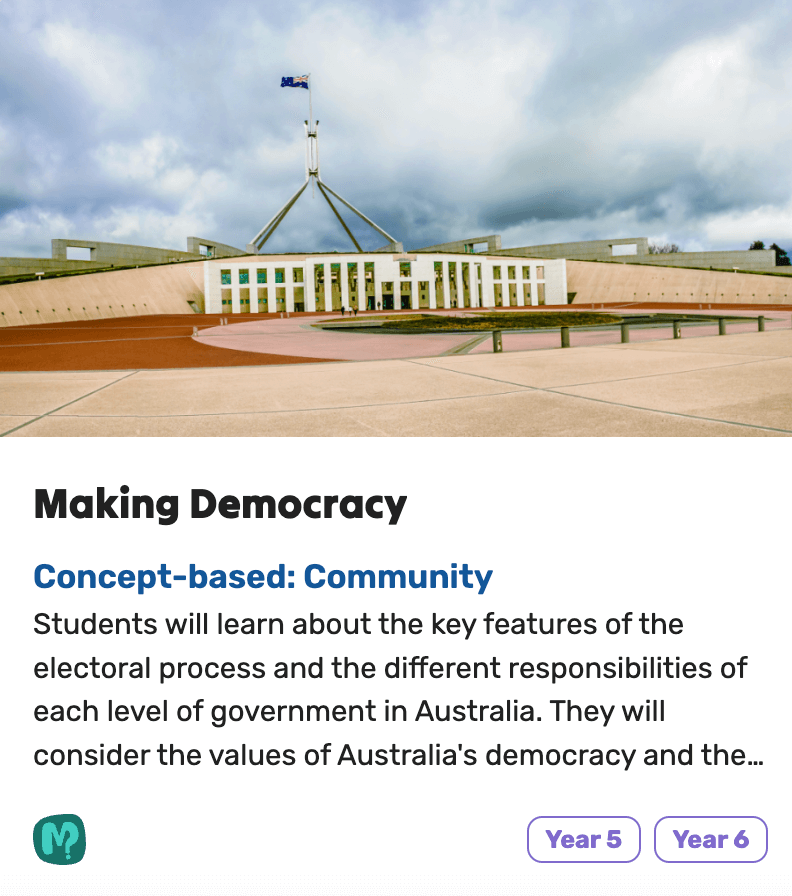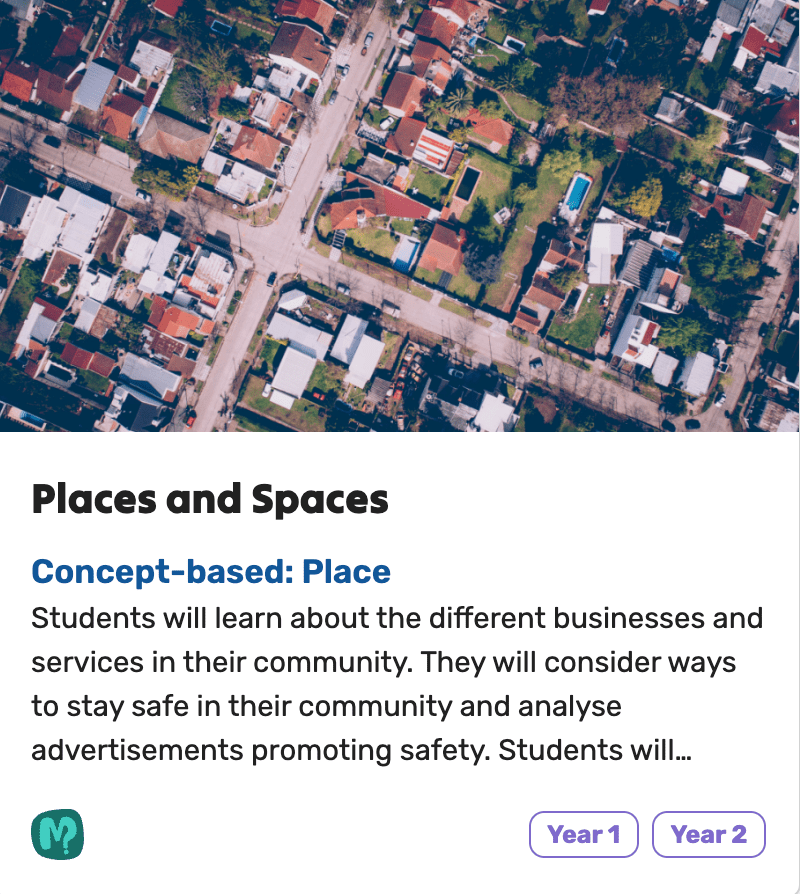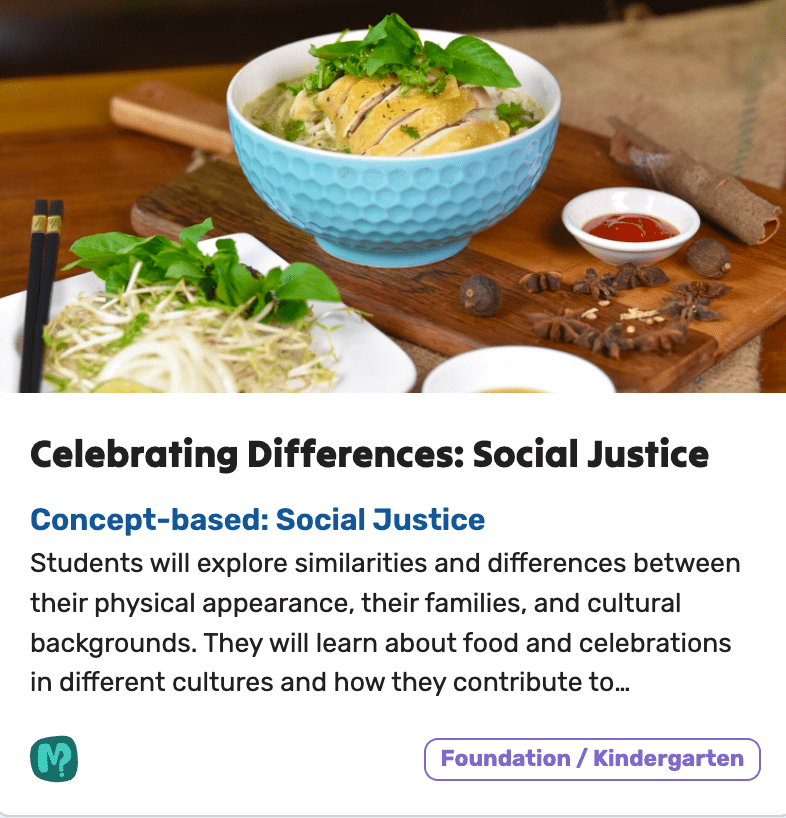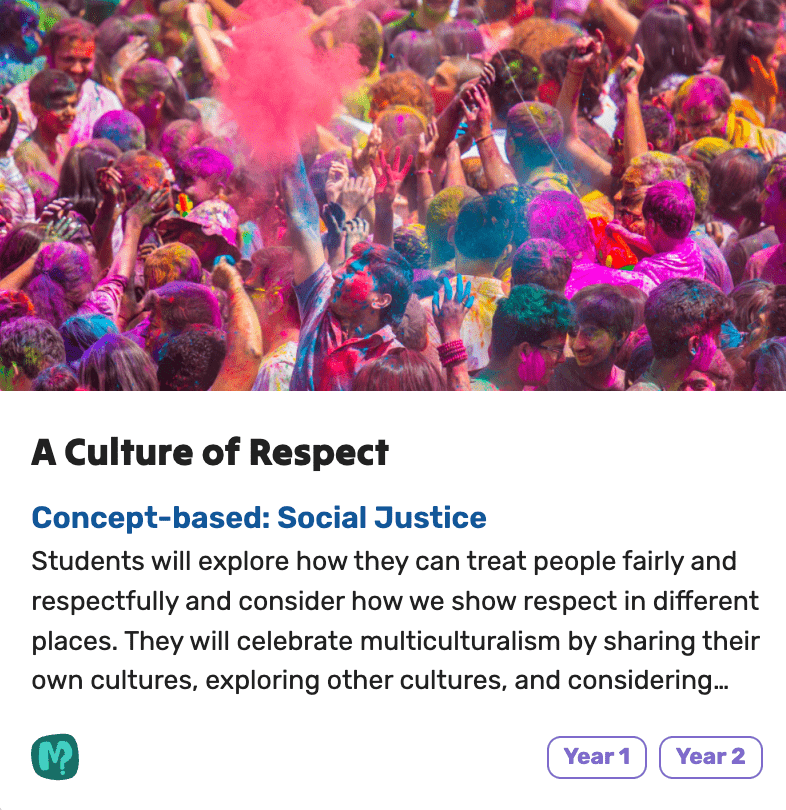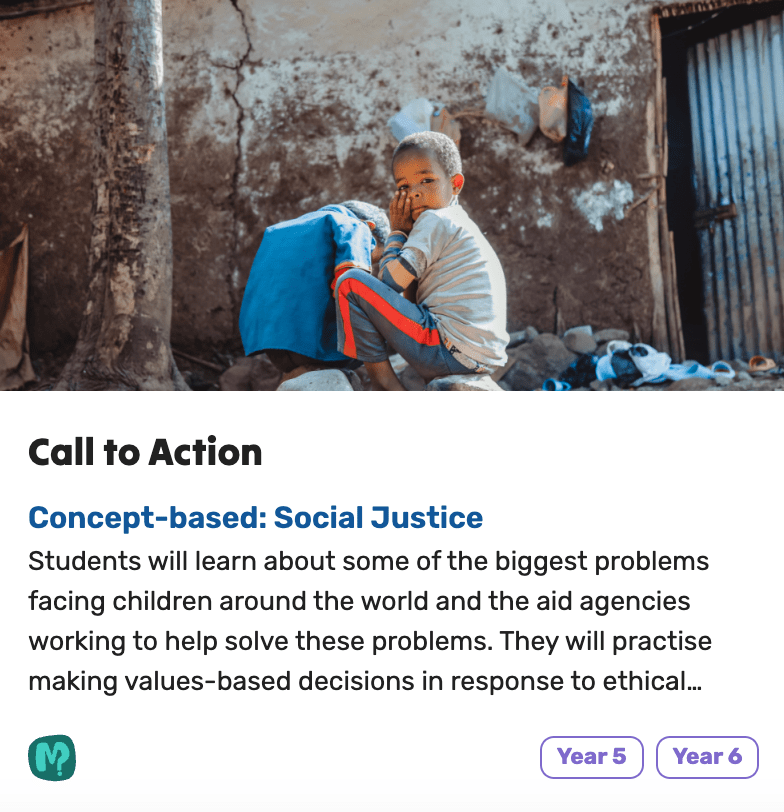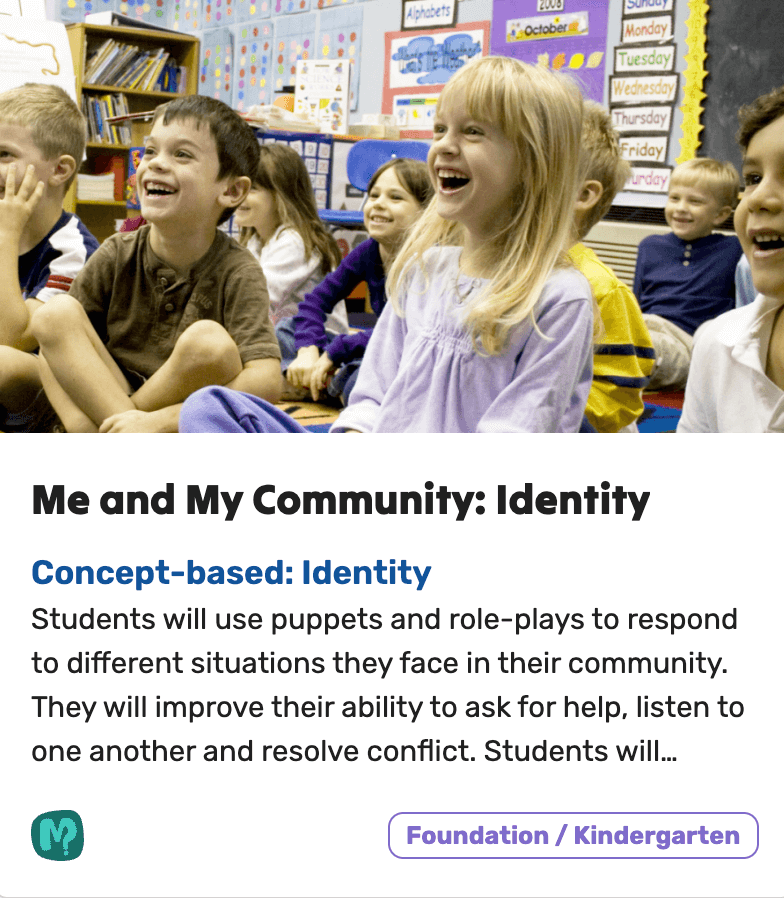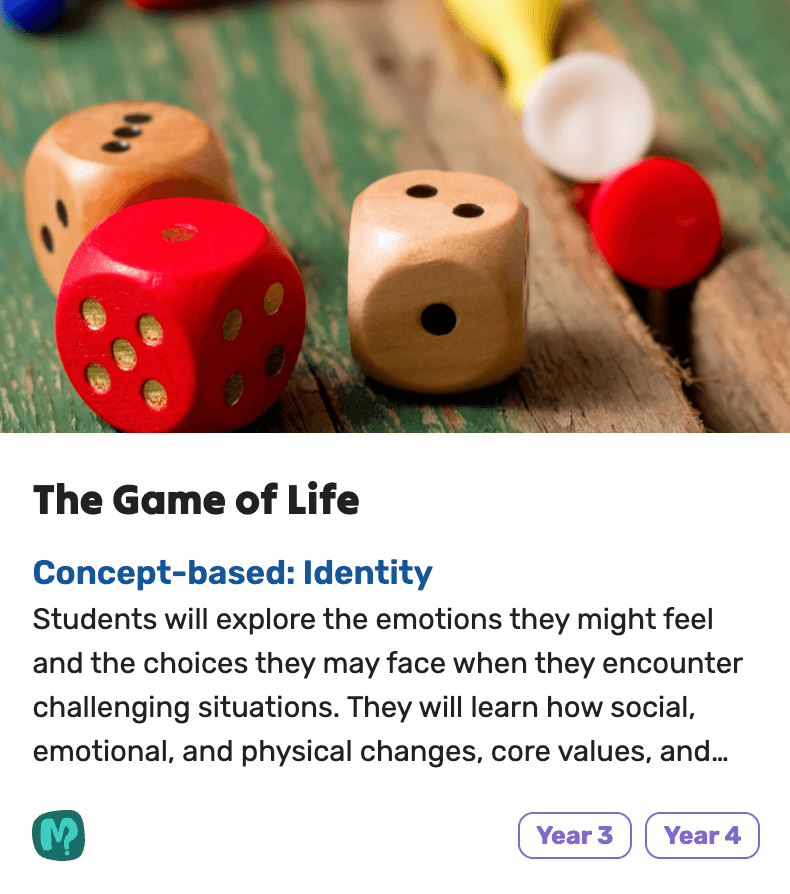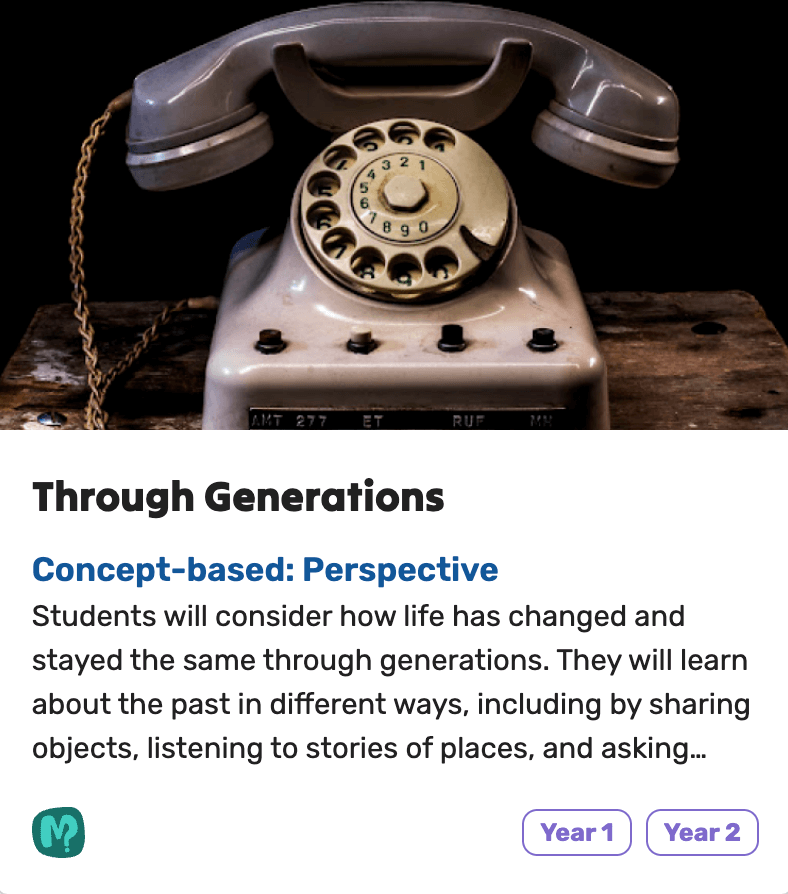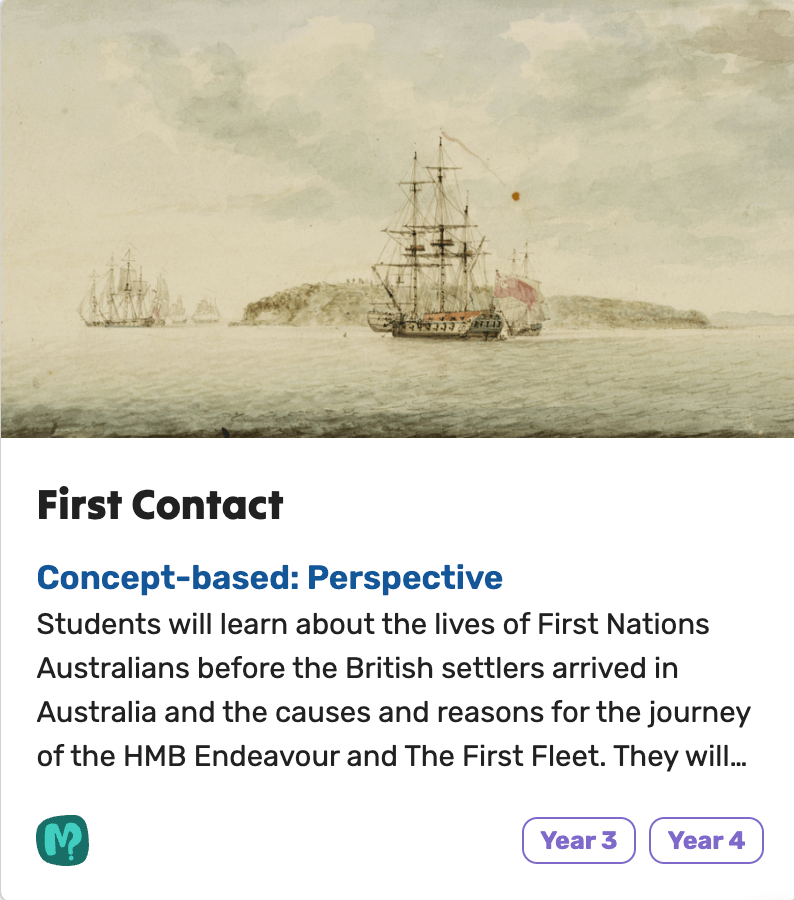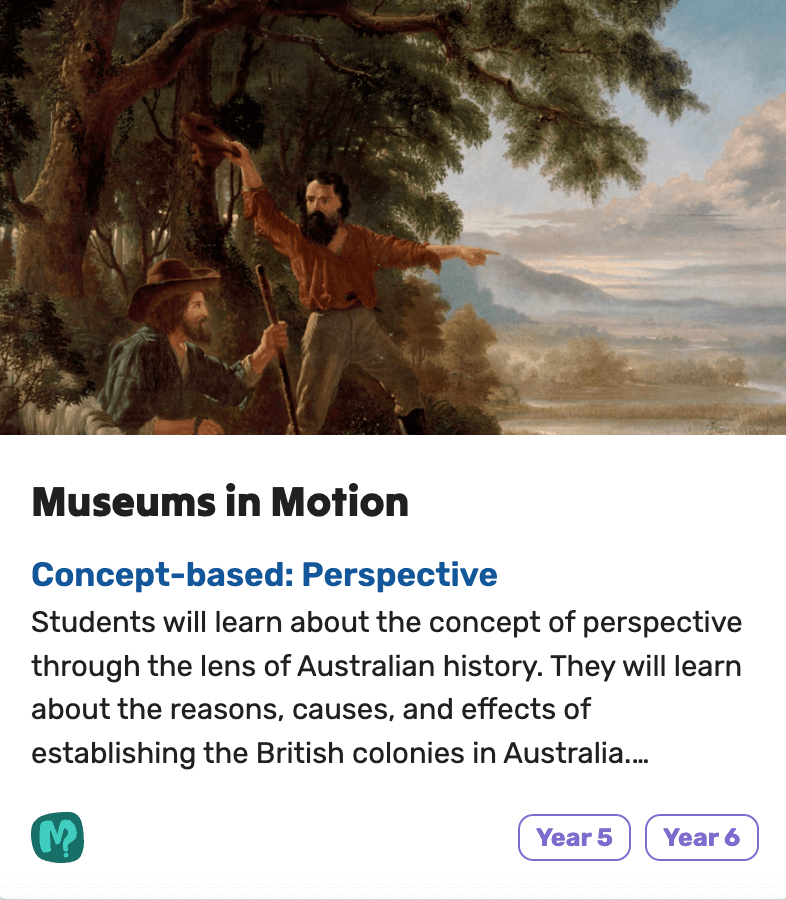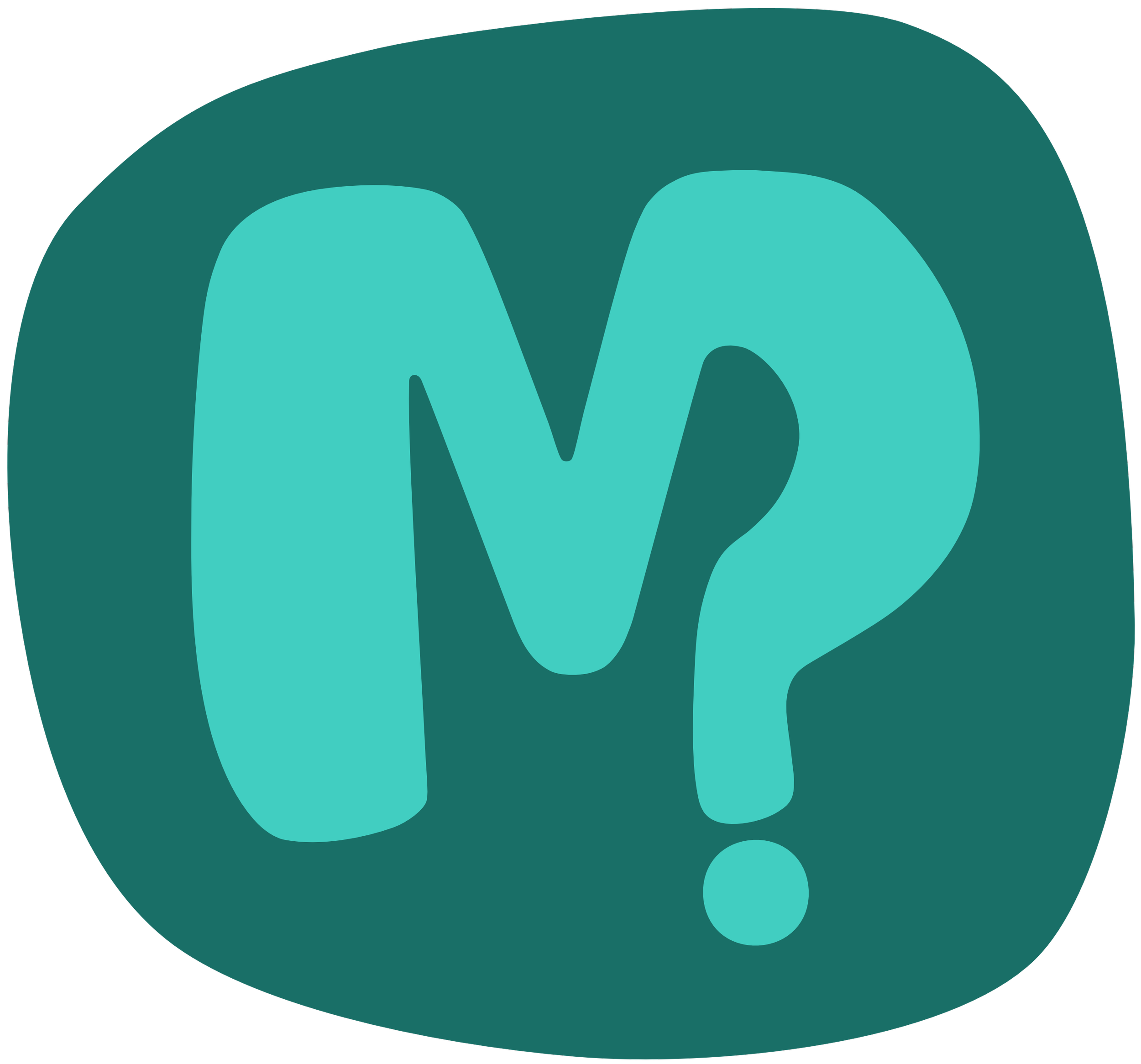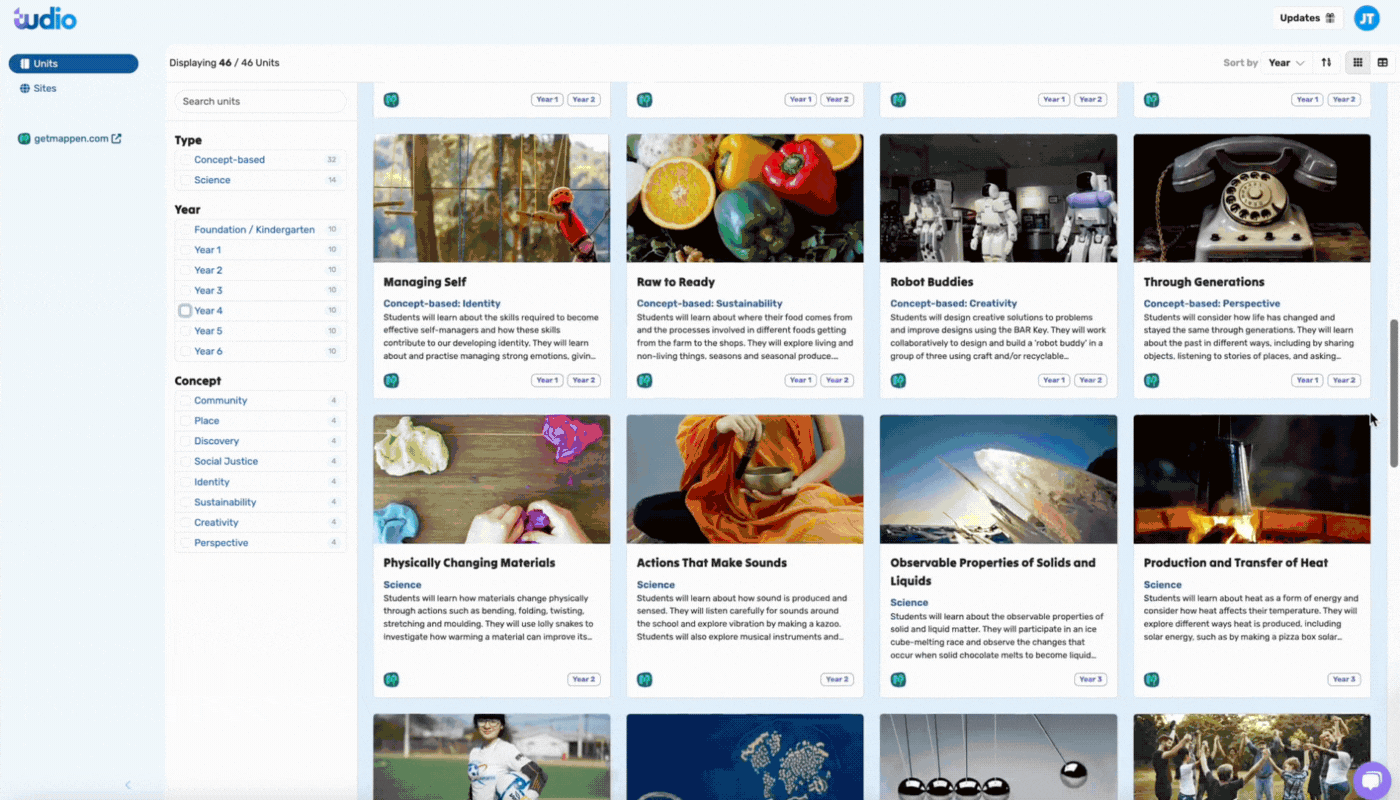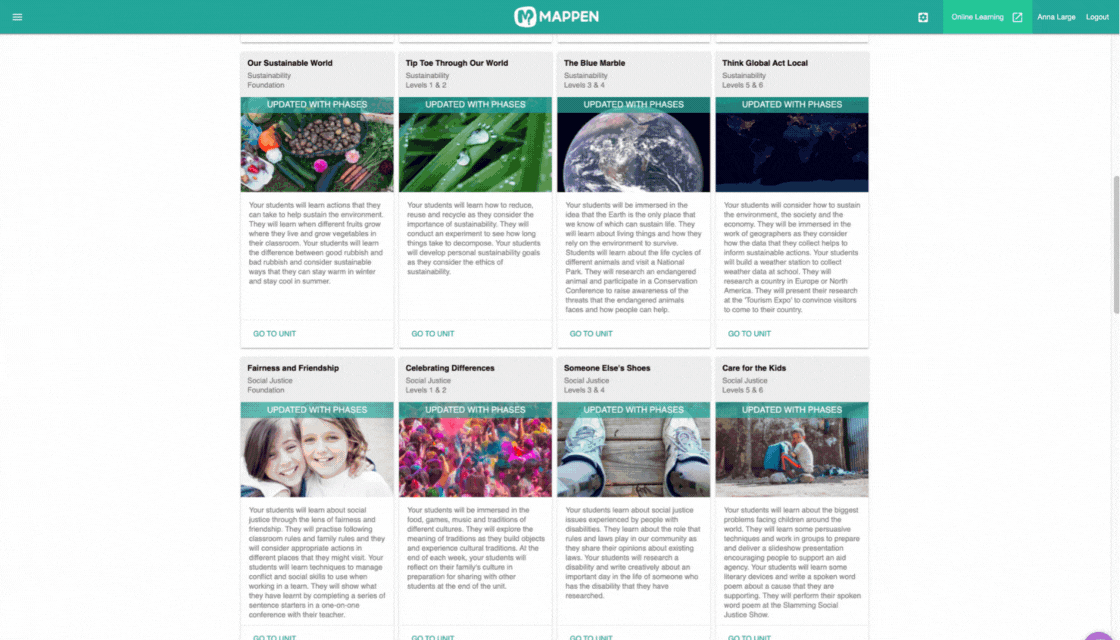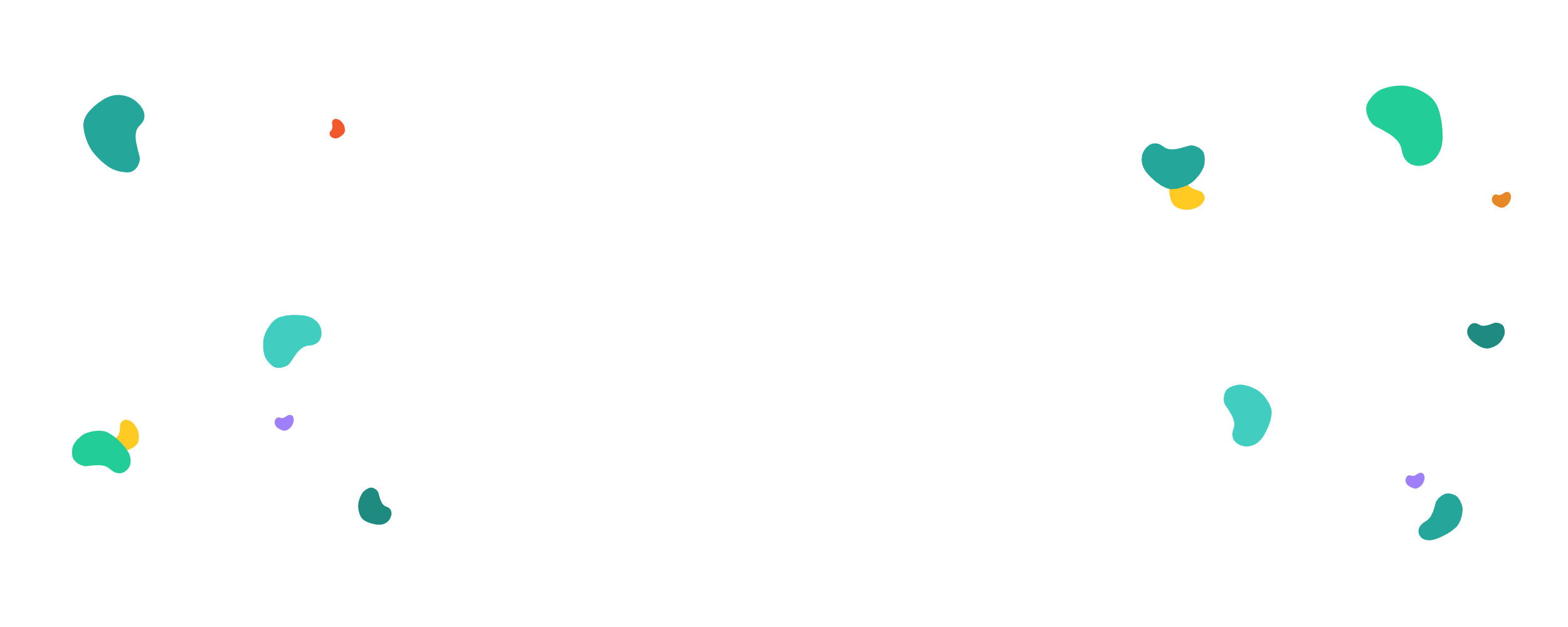
Concept-based learning
In our 32 concept-based units, we provide opportunities for students to explore content and skills through real-world scenarios.
An eight-week unit is delivered over the course of a term, designed around one of eight concepts outlined below.
Taking a whole-school approach, all years/stages will investigate the same concept simultaneously, creating common themes and language across the school and at home - promoting rich conversations at the dinner table and encouraging students to ask meaningful questions about their world.
Our scope and sequence outline how we recommend all concepts be explored over the course of 8 terms (2 years).
The Eight Concepts
-
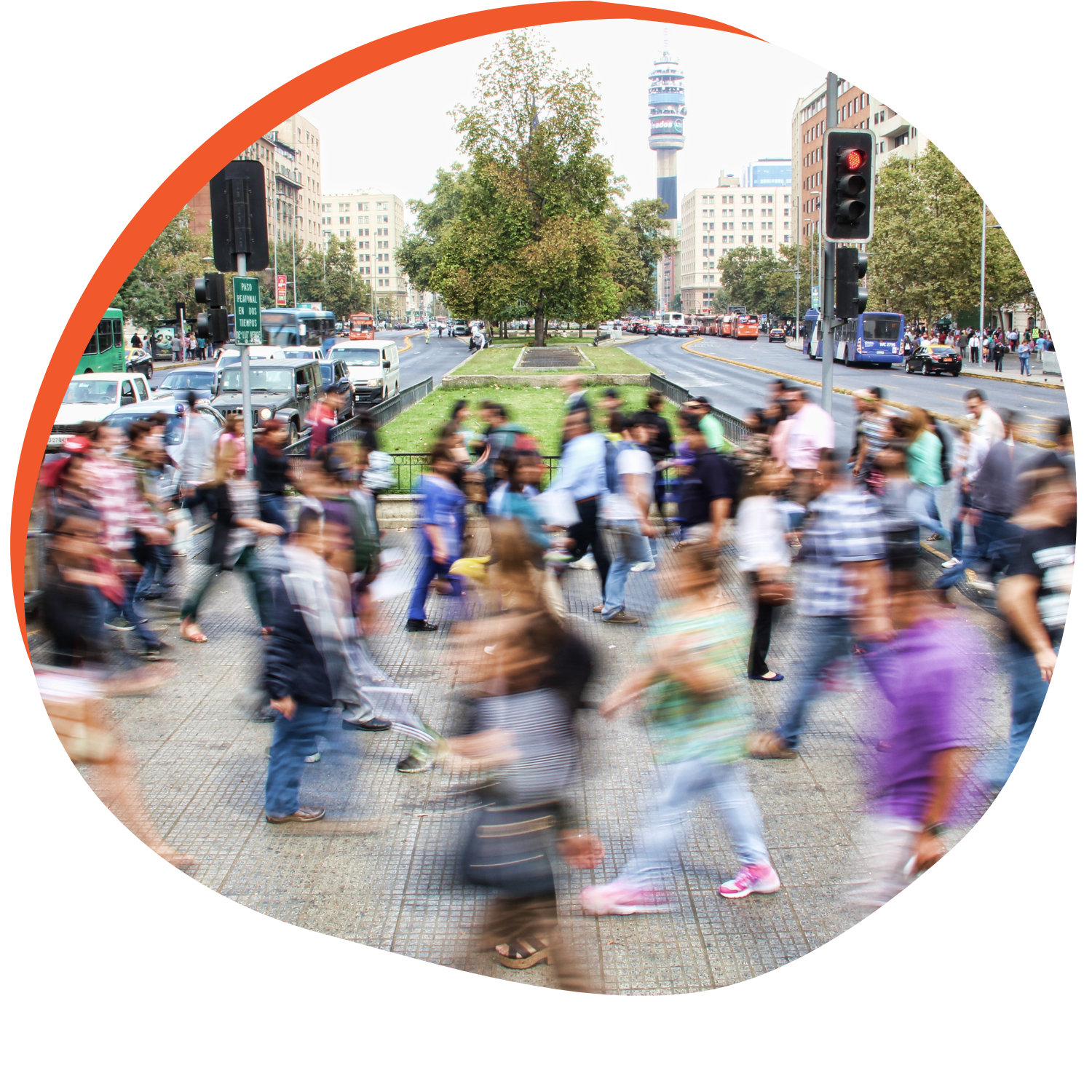
Community
Students learn about the importance of community membership, including how to show respect, listen to, and care for each other, collaborate as a class community, build community connections, actively participate in community activities, and understand their community’s values, rules, and responsibilities.
-

Sustainability
Students learn about different places and how we can care for and sustain them, where our food comes from and how we can make healthy and sustainable food choices, Earth’s water and the importance of water conservation, and how to protect environments to ensure the sustainability of our precious wildlife.
-
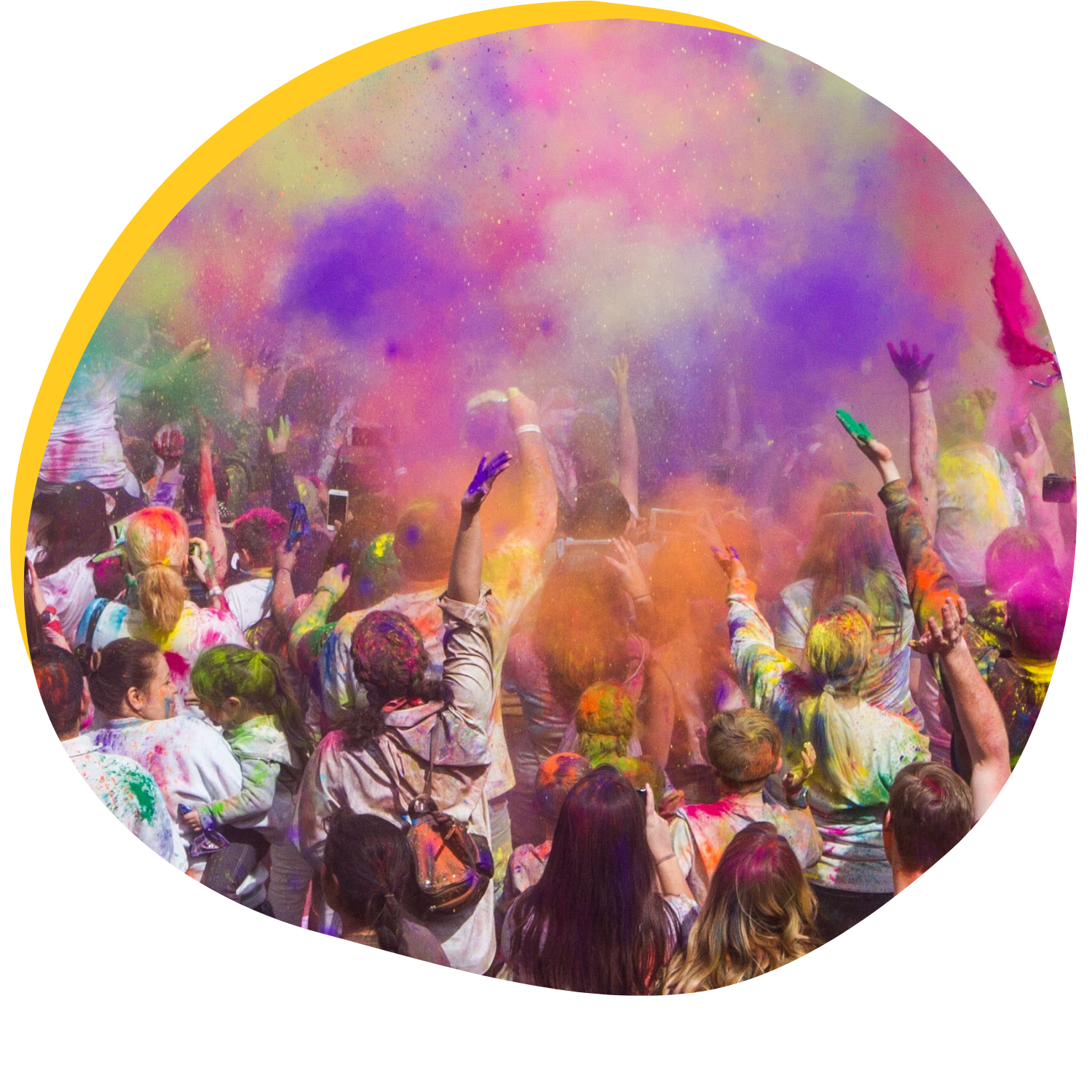
Social Justice
Students learn about social justice through the lens of fairness, explore similarities and differences, celebrate multiculturalism, develop empathy, become allies for inclusion, and understand some of the biggest problems facing children around the world to gain perspective.
-

Creativity
Students learn about the properties of materials and how to use them creatively, consider the purpose of everyday objects and the design process undertaken to build them, find new opportunities to be creative in their day-to-day lives and analyse more deeply the things they consume and how they have been produced.
-

Identity
Students explore their identity through their emotions and connections to others, learn skills to become effective self-managers, explore how social, emotional, and physical changes, core values, and stereotypes influence their identity, and consider how the media and role models affect their identity.
-
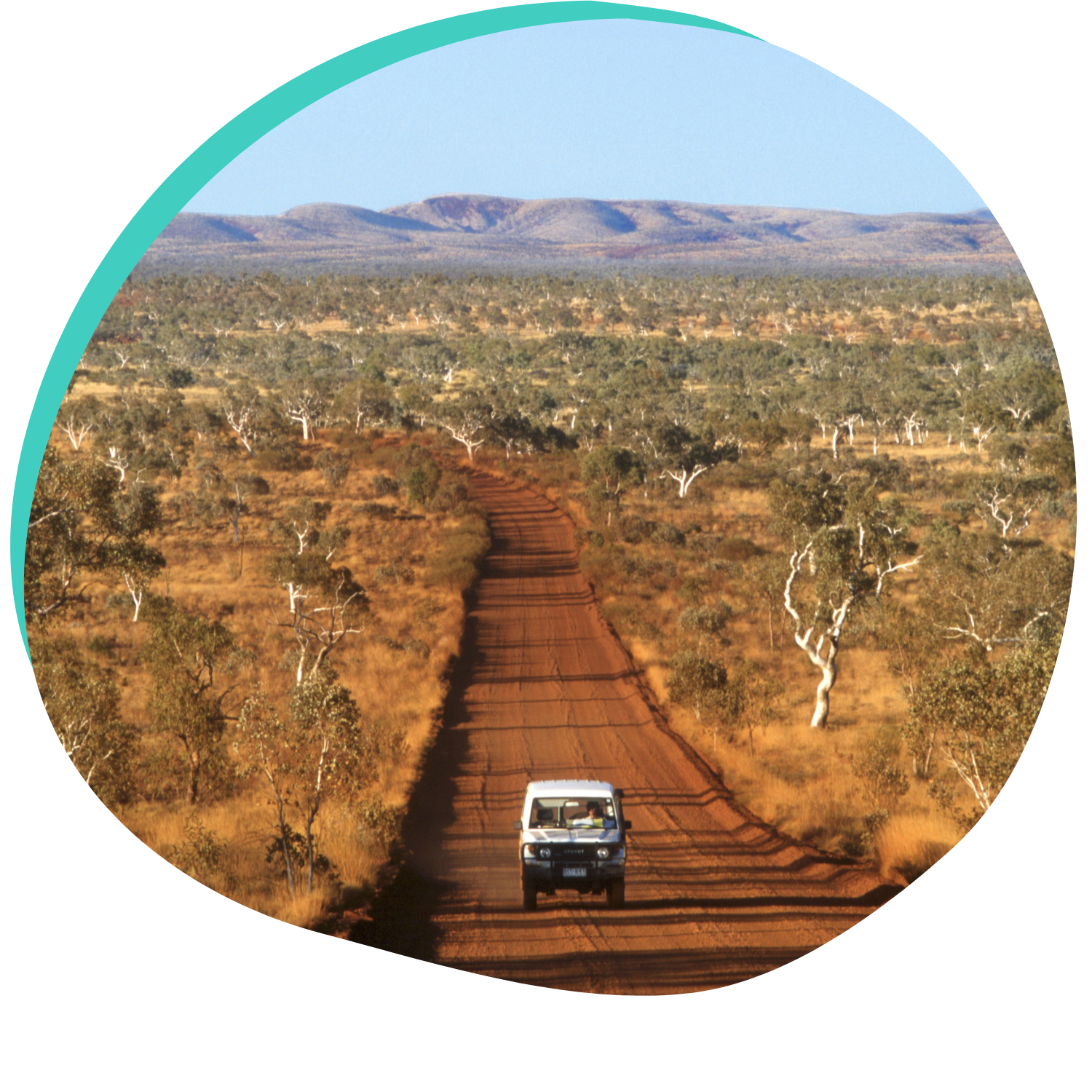
Place
Students learn about different places and how we can care for and sustain them, places in their local community, the diversity of places and what makes them unique, the importance of ‘Place’ to First Nations Australians and different aspects of life in other places, including Asia.
-
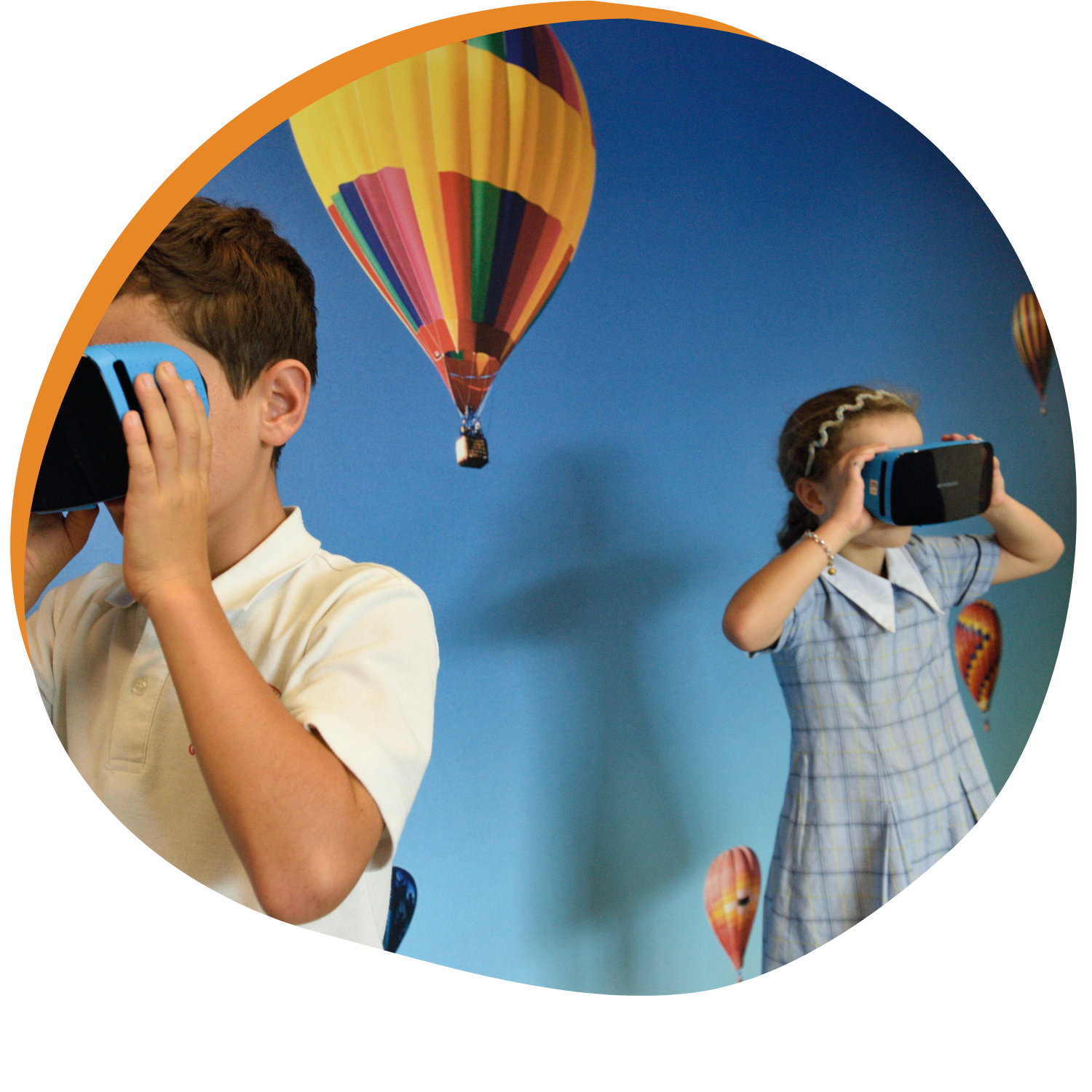
Discovery
Students learn about the properties of materials and their different uses, make discoveries as they practise thinking and acting like scientists, test predictions, develop hypotheses to make discoveries and develop their science inquiry skills by investigating answers to scientific questions.
-
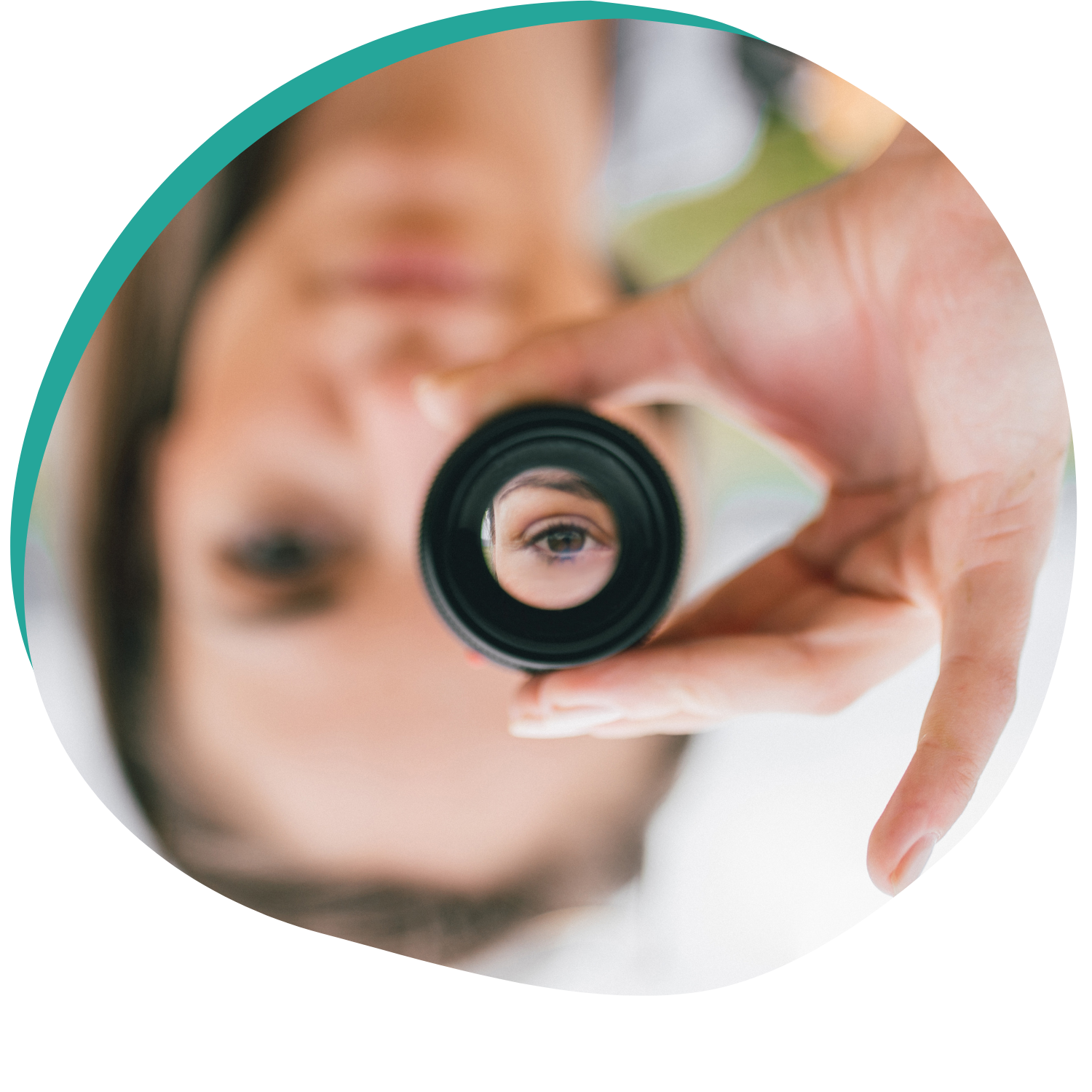
Perspective
Students explore how our cultural background and experiences shape our perspective, consider how life has changed and stayed the same through generations, develop inquiry skills through questioning and exploring artefacts, and analyse historical events from various perspectives, including First Nations Australians.
Community Units
Place Units
Discovery Units
Social Justice Units
Identity Units
Sustainability Units
Creativity Units
Perspective Units

Curious about curriculum alignment?
View the unit curriculum maps:
Anatomy of a MAPPEN Concept-based Unit
Our recently updated (2025) Concept-based units are accessed via our brand new platform, Tudio.
They contain links to:
Victorian Curriculum 2.0
Australian Curriculum V9
New NESA Syllabus
Tudio is the future home of all Mappen content.
What’s different about the updated units on Tudio, compared to the previous units?
NEW TOOL: Presentation Mode - cast the whole unit to slides
NEW TOOL: Outcomes Auditor - download curriculum maps for your own election of units
Reduction in the volume of content, including more consistency
Student-facing language in unit task steps
Brand new Sites (like Google Sites) offering a safe information space for your students to navigate
Fully redesigned worksheets, graphic organisers, thinking tools and other resources
Easier access to linked Texts, to support your Literacy program
Consolidated Foundation/Kindergarten content across four units
Two new concepts 'Place' and 'Perspective', replacing 'Change' and 'Connections’
Coming soon:
Assessment Tool
Scope and Sequence Planning Tool
Notes (Task Observations and Reflections)
Editability
The previous versions of our Concept-based units live on our existing platform - getmappen.com.
They contain links to:
Victorian Curriculum 1.0
Australian Curriciulm V8.4
Existing NESA Syllabus
These units are guaranteed to be available on getmappen.com until at least the end of 2025.


